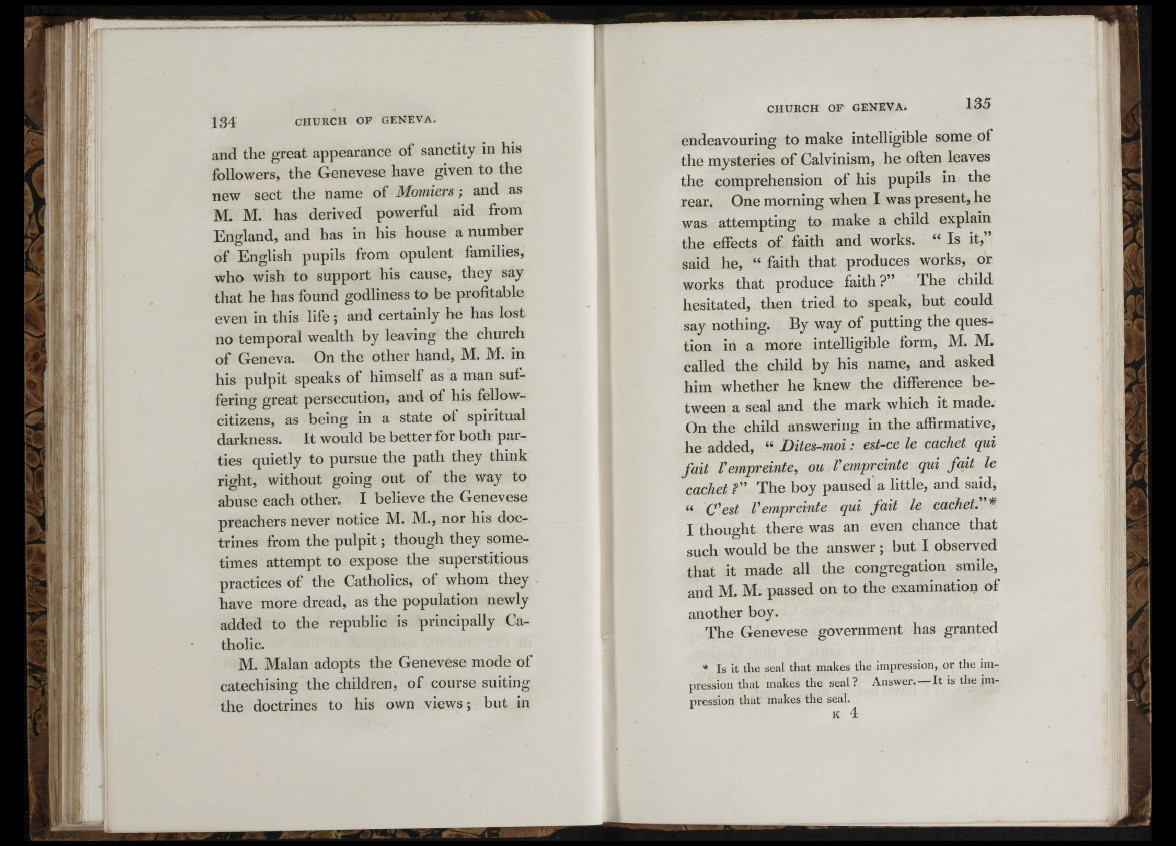
Ur;
■'i;
134 CHURCH OF GENEVA.
and the great appearance of sanctity in his
followers, the Genevese have given to the
new sect the name of Momiers ; and as
M. M. has derived powerful aid from
England, and has in his house a number
of English pupils from opulent families,
who wish to support his cause, they say
that he has found godliness to be profitable
even in this life ; and certainly he has lost
no temporal wealth by leaving the church
of Geneva. On the other hand, M. M. in
his pulpit speaks of himself as a man suffering
great persecution, and of his fellow-
citizens, as being in a state of spiritual
darkness. It would be better for both parties
quietly to pursue the path they think
right, without going out of the way to
abuse each other. I believe the Genevese
preachers never notice M. M., nor his doctrines
from the pulpit ; though they sometimes
attempt to expose the superstitious
practices of the Catholics, of whom they
have more dread, as the population newly
added to the republic is principally Catholic.
M. Malan adopts the Genevese mode of
catechising the children, o f course suiting
the doctrines to his own views; but in
■m
endeavouring to make intelligible some of
the mysteries of Calvinism, he often leaves
the comprehension of his pupils in the
rear. One m orning when I was present, he
was attempting to make a child explain
the effects of faith and works. “ Is it,
said he, “ faith that produces works, or
works that produce faith?” The child
hesitated, then tried to speak, but could
say nothing. By way of putting the question
in a more intelligible form, M. M.
called the cliild by his name, and asked
him whether he knew the difference between
a seal and the mark which it made.
On the child answering in the affirmative,
he added, Dites-moi : est-ce le cachet qui
fa it Vempreinte, ou Vempreinte qui fa it le
cachet r*” The boy paused a httle, and said,
C’esi Vempreinte qui fa it le cachet. *
I thought there was an even chance that
such would be the answer; but I observed
that it made all the congregation smile,
and M. M. passed on to the examination of
another boy.
The Genevese government has granted
* Is it the seal that makes the impression, or the impression
that makes the seal? Answer. — It is the impression
that makes the seal.
K 4